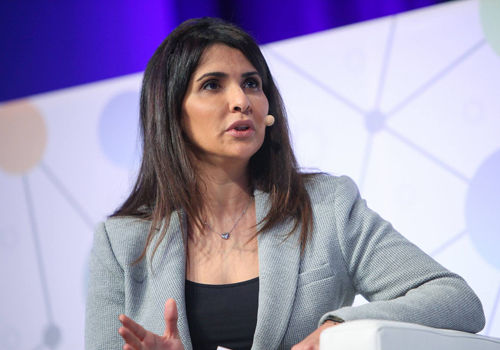 BCG head of global travel Gehan Colliander provides the travel data that will inform the firm's net-zero emissions commitment.
BCG head of global travel Gehan Colliander provides the travel data that will inform the firm's net-zero emissions commitment.
Global
management consultancy Boston Consulting Group has pledged to cut its business
travel-related carbon emissions at least 30 percent per full-time employee by
the year 2025 from 2018 levels. The target is part of a commitment BCG
announced in September 2020 to reach net-zero climate impact for the business
by 2030 through carbon-reduction initiatives while investing in carbon-removal
projects for the footprint that remains. Slashing business travel emissions is
central to BCG's sustainability strategy, but it is a daunting challenge
because travel accounts for more than 80 percent of the company's total carbon
footprint.
Head
of global travel Gehan Colliander is central to achieving that goal—not because
she is a sustainability expert but because she is a travel data expert and
knows the nuances and data points required to understand travel complexities
and travel volumes. Origin, destination, aircraft type, fare class—all these
affect the carbon footprint of a business trip. Car, rail and hotel stays, as
well, produce substantial emissions that must be mitigated to achieve BCG's
carbon goals. And BCG wants to look at all this data in different ways, said
Colliander, by supplier, by traveler, by business unit, to understand how to
focus its efforts.
"Travel
is complicated," acknowledged managing director and partner for global
operations services Kathryn Bell, who is responsible for BCG's travel and
sustainability as well as procurement, security and facilities. "One has
to understand deeply the way the travel supply chain operates and the nuance of
the data. The sophistication of analysis that was required to ensure the
sustainability team really understood how travel emissions relate to travel
data was a very important role for Gehan and her team."
"We are moving into an environment in which we have to make our carbon emissions meaningful," said Colliander. The travel manager's role, she said, is to collaborate with the sustainability team and provide the information required to set strategy and measure the impact of the levers being pulled to drive that strategy.
But Colliander knows there
are two sides to the carbon emissions story. It's not just about measuring what
is happening in the business, it's also about influencing traveler choices—first,
whether to travel and, if travel is necessary, how to limit the carbon emitted
by the trip.
To that end, she has partnered
with booking tool provider KDS to deliver carbon emission information at the
point of sale. "When travelers book their trips, they are provided with
emissions information based on the same conversion factor that the BCG
sustainability team uses to calculate the firm's overall carbon footprint,"
said Colliander. Aligning that information has provided consistency across
BCG's carbon reduction strategy and has armed travelers with insights to make
the right decisions for the business and the environment.